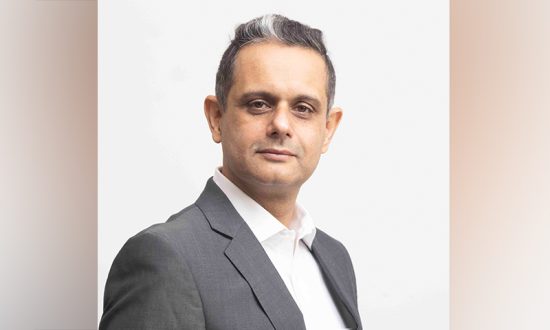Nitin Thakur is a pragmatic, astute and inspiring individual, lauded by others for his servant leadership, authenticity and common sense. His 24 years of a professional journey across the likes of GE, Barclays, UnitedHealth, and a few other ITES, Manufacturing & Sales organizations, has left a trail of his innate and effortless ability to help others be their best. Nitin has extensive global experience in Talent Management, HR Process re-engineering & HR Strategy roles. His strengths are his communication skills, problem-solving, speed of execution, ability to empathize and yet be assertive, ability to drive change, and above all, Strategic vision & creativity. Current Role at UnitedHealth Group as a Regional Leader with UHG, he provides strategic consulting & thought leadership across the Asia Pacific region, in an advisory role.
We are in an era where we have witnessed complete transformation in how we communicate, live and work. Our workplaces, especially, have recalibrated to adapt to the changing dynamic. This change has also meant integration of advanced technologies and processes which have given rise to newer jobs and career streams. In fact, an interesting research states that 85 percent of all jobs in 2030 have not been invented yet. It wouldn’t be an exaggeration if I say that the current cohort of school and university students as well as our future generations will have hundreds more career options to shortlist from and pursue. While the career paths might be aplenty to choose from, the innate factors that will impact their decisions remain the same. Understanding these factors and how they shape our behaviour will help us to determine where one’s unique motivations, talents, or beliefs come from. And if there indeed, is a way to use that understanding and optimise our potential for a successful career.
Let’s talk about these factors and how they influence an individual’s behaviour, personality and intellectual ability, which eventually leads to charting a specific career roadmap. Think about it; through the spectrum of learning in a student’s life, why is it that some children are likely to find specific learning experiences more challenging than others. Or why is one student more motivated to study a particular subject than another? Our genetic makeup has a lot more influence on almost every aspect of our lives than we think. It goes beyond our height or the colour of our eyes – our physical and emotional wellbeing, intellect, personality and behaviour – are all impacted by genes. A fair argument here would be that it is the environment that shapes us. Yes, it surely does, but genes and environment rarely act in isolation. Differences in individuals on any complex trait (including educational achievement and preferences) are the resultant of a complex interplay between the genes and the environment. If we talk specifically about the realm of education and careers – they are things that do not happen to a student passively. The students are active participants in selecting, modifying and creating experiences that match their genetic predisposition. The gene-environment corelation is at play constantly here.
The implication of genes on us, and thus our education preferences and further on our career choices must not be underestimated. The type of work we prefer, whether we want to be a leader, our entrepreneurial drive, how we react to stressful situations – genes play a critical role in all these work-related behaviours. There has been innumerable research to support this. It was way in 1932, that Harold Carter found statistical evidence that the preference to become doctors, engineers, or salesman, in fact had a genetic component to it. Because our learning capabilities and interests are different due to our genetic disposition, it nudges us towards certain kinds of careers. A person’s higher ability to understand complex technical instructions, for example, can nudge him or her to choose engineering or any technical filed as a profession. While some might prefer a career that is more physically demanding than intellectually stimulating. Genetics also influences decisions such as whether to stay in a job or explore entrepreneurship. In his book, Born Entrepreneurs, Born Leaders: How Genes can affect your work life, Scott Shane, talks about how genes might explain. Why we quit our jobs to start a business, perhaps influenced by our preference and innate desire for autonomy.
When assessing interests and personality to aid the process of choosing one’s career, psychometrics play a critical role in offering fundamental insights into one’s mental and emotional disposition. It is interesting here that the key behavioural traits – openness, conscientiousness, extraversion, agreeableness, and Neuroticism – are in part influenced by genes. In fact, research shows that the influence is as high as 40 to 50 percent.
A combination of an individual’s innate abilities due to their genes as well as their acquired talents, can help determine a holistic career choice. By understating the student’s innate strengths, we can guide them to choosing a career path that will help them optimise their potential to the fullest. Does this mean we are limiting their choices or putting them in a box defined by certain traits? Definitely not. Think of it this way – some children are genetically predisposed to be fast runners but some are not – and yet maybe interested in athletics. By using the information that their genes present, intertwined with their personality traits, coaches can guide promising young athletes into sports to which they are best suited, rather than blocking them from athletics altogether.
Our unique disposition is key to our career choices. We can leverage this understanding to create comprehensive, end-to-end career roadmaps for our students which are in-line with their interests, talents and personalities. We can guide them so they skill, up-skill and re-skill for careers that they are more likely to be successful at. With this, our students will be well-equipped to take on the careers of the future and brace any transformation that comes their way.




